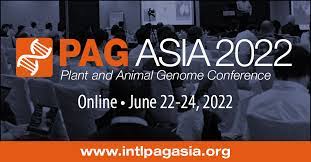Ver ítem
- xmlui.general.dspace_homeCentros Regionales y EEAsCentro Regional Buenos Aires NorteEEA San PedroPresentaciones a Congresosxmlui.ArtifactBrowser.ItemViewer.trail
- Inicio
- Centros Regionales y EEAs
- Centro Regional Buenos Aires Norte
- EEA San Pedro
- Presentaciones a Congresos
- Ver ítem
A Machine Learning- Based Approach for the Discovery of Climate Smart Peaches
Resumen
The temperate climate fruit trees are proposed as the crops that will be more affected by climate change. This is due to that these tree species alternate a dormancy period induced by chilling requirement with a vegetative growth that is promoted by heating conditions. In addition to being plants of considerable size, are cultivated in open fields influenced by weather conditions. Besides its economic importance, peach is a model for rosacea species due
[ver mas...]
The temperate climate fruit trees are proposed as the crops that will be more affected by climate change. This is due to that these tree species alternate a dormancy period induced by chilling requirement with a vegetative growth that is promoted by heating conditions. In addition to being plants of considerable size, are cultivated in open fields influenced by weather conditions. Besides its economic importance, peach is a model for rosacea species due to a small and diploid genome (2n=2x=16, 256 Mb) that is sequenced. In this work a novel Machine Learning based approach for traits forecast from genomic and climate variable is presented. A data set was obtained from the analysis of the EEA San Pedro peach collection composed of 237 accessions genotyped (13,584 genetic variants) by an in-house developed ddRAD-seq platform and phenotyped for Flowering date (FD), Harvest date (HD), Fruit weight (FW) and Soluble Solid Content (SSC) during 5 seasons (2017-2021). The climate variables (Chilling hours, Chilling units, Global radiation, Relative humidity, Pluviometric precipitation and Daily mean temperature) obtained from an automatic weather station were included resulting in combined (genomic, phenotype and climate) data set of 3.8 M data points. A Random Forest model was trained (using 80% of the data) for each trait resulting in performance (R2) higher than 90%. The cross validation indicated that the models forecast the FD and HD with R2 higher (84% and 79%) than FW and SSC (50% and 41%). To test the ability of the models to forecast extreme seasons, the season with less chilling accumulation of our region for the last 65 years was predicted. The R2 were in agreement with the results of cross validation indicating that the models performed well for climate scenarios that were not used in the training. Hypothetical future weather sceneries were simulated decreasing the daily chill hours and chill units (20%, 40% and 60%). The traits were forecasted for each scenery finding that when the daily chill hours and chill units decrease, 16% of genotypes will flower early (2-20 days) and 31% of genotypes will flower late (2-23 days). For harvest date 28% of genotypes showed an early harvest (2-40 days) and 42% of genotypes a late harvest (2-21 days). Furthermore 114 genotypes were stable for flowering date, and 58 genotypes were stable for harvest date under these conditions. From these genotypes a set of 35 that keep the two variables stable at the same time were identified. The final model trained with all seasons allowed us to identify the importance of variables (genetic and climatic) for make the predictions. Unexpectedly, some climate variables presented a high level of importance to the trained model suggesting novel phenomena. Here we present a the proof of concept that encourage the use of machine learning tools for the identification and selection of peach genotypes able to face climatic change. Currently, we need to collect more data to improve the performance of our predictions and extend these machine learning tools to other traits.
[Cerrar]

Descripción
Poster
Fuente
PAG Asia 2022. Plant and animal genome Conference. June 22-24. 2022
Fecha
2022
Documentos Relacionados
Formato
pdf
Tipo de documento
documento de conferencia
Proyectos
(ver más)
INTA/2019-PE-E6-I114-001/2019-PE-E6-I114-001/AR./Caracterización de la diversidad genética de plantas, animales y microorganismos mediante herramientas de genómica aplicada.
Palabras Claves
Derechos de acceso
Restringido
 Excepto donde se diga explicitamente, este item se publica bajo la siguiente descripción: Creative Commons Attribution-NonCommercial-ShareAlike 2.5 Unported (CC BY-NC-SA 2.5)
Excepto donde se diga explicitamente, este item se publica bajo la siguiente descripción: Creative Commons Attribution-NonCommercial-ShareAlike 2.5 Unported (CC BY-NC-SA 2.5)

